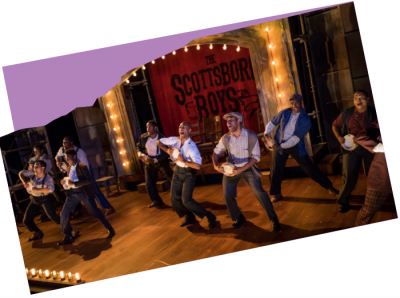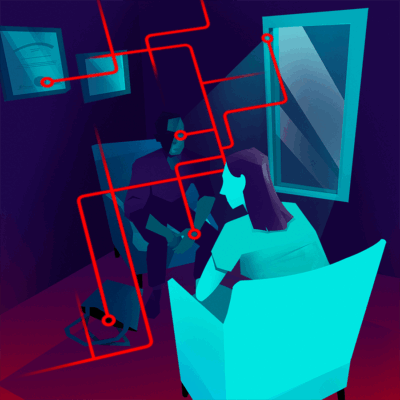Your donation sets the stage for a new season of Boston's most intimate, entertaining and provocative plays and musicals. Our shows make powerful connections with our audiences-- and they are only possible because of you.
Journey to the Desert
Journey to the Desert
Journey to the Desert

Hollywood has long been a destination for playwrights looking to earn a living by putting pen to paper. Even the most successful theatrical writers may have trouble supporting themselves on just royalties from their plays, and thus find themselves drafting screenplays and spec scripts to make ends meet. Often the film/television/stage dynamic can be both energizing and beneficial: each medium flexing a different writing muscle and providing a wealth of unique narrative opportunities. Indeed, getting to tell your story in the way that best suits it (and being paid at the same time!) is a tantalizing dream.
But sometimes the balance is thrown off, and the situation becomes untenable, both creatively and personally. For writers, there’s more money to be had in film and TV than in theatre, but significantly less control. Producers who put tens of millions of dollars behind a project are usually less willing to trust an artist’s creative impulses; and thus what is meaningful can often rub up against what is profitable, with the unfortunate writer in the middle of all the friction.
So it was with Jon Robin Baitz who, in 2007, after a nearly two-decade career of award-winning plays and film and television success, found himself unceremoniously booted from the driver’s seat of the television show he had created—ABC’s “Brothers and Sisters”—during its first season. (It would go on to run four seasons without him.) At issue was the creative direction of the show, which Baitz wanted to steer into more serious terrain than the network, who saw it as a vehicle for more family-friendly, heartwarming stories than Baitz’s political and socio-religious examinations.
The break-up was a messy one, and left a despondent Baitz holed up in his Long Island home, attempting to write a play and realizing, as he said in a 2010 essay for Broadway.com, that he had forgotten how. Years of writing for the screen had caused the stage muscles to atrophy, and he had to get them back in shape before he could return to heavy lifting.
For motivation, Baitz turned to his friends in the New York theatre world, most prominent among them director Joe Mantello. Mantello was a frequent collaborator (and former partner), who knew Baitz well enough to provide tough love when necessary.
“It was Joe who said the smartest thing that anyone has ever said to me when I was sort of paralyzed,” Baitz told The Daily Beast in 2011. “He said, ‘Nobody is waiting for the next Jon Robin Baitz play.’”
To get started, Baitz began reading old favorite plays by favorite authors. He took up teaching at the New School for Drama, and most importantly, began looking for sparks that would fire his imagination. Eventually, he found inspiration: an older woman walking by him on a beach stuck in his mind and reminded him of the late and glamorous Patricia Buckley. Gradually the thought spun outward, to family, power structures, politics, and his childhood home of Palm Springs.
Re-energized, Baitz connected the dots into his first play since the trauma of the year before. The first draft was finished on December 31st of 2009 (Baitz claimed it was at 11:59 pm exactly), but Mantello and others continued to push him to revise and clarify it during the following year. Among other things, the title changed from Love and Mercy to Other Desert Cities. Finally, Lincoln Center agreed to produce it with Mantello as director, and Other Desert Cities opened Off-Broadway to critical acclaim on January 13, 2011, transferring to Broadway later that year.
Baitz has found his way back to Hollywood since then (even writing the screenplay adaptation of Other Desert Cities), but continues to live on Long Island, keeping close to the theatres and collaborators that best keep his own work in balance.
—Walt McGough
 Past Productions
Past Productions Primary Trust
Primary Trust Lizard Boy: A NEW MUSICAL
Lizard Boy: A NEW MUSICAL JOB
JOB The Antiquities
The Antiquities Swept Away
Swept Away




